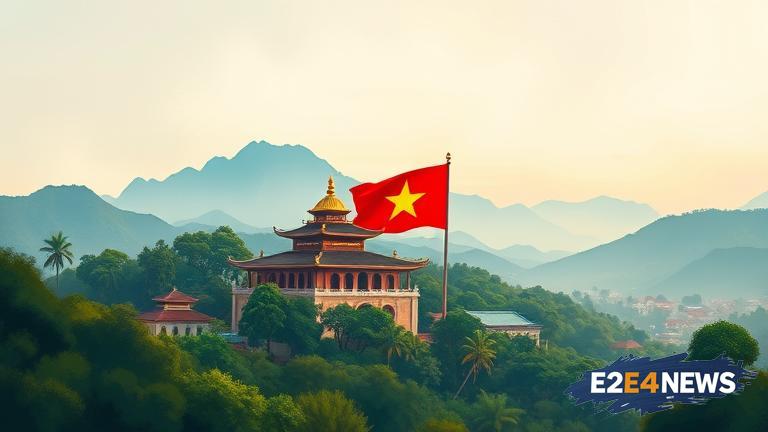Vietnam is commemorating a significant milestone – 80 years of independence. On September 2, 1945, the country declared its independence from French colonial rule, paving the way for a new era of freedom and self-determination. Over the years, Vietnam has made tremendous progress in preserving and promoting its cultural identity. The country’s rich cultural heritage, including its vibrant festivals, traditional music, and exquisite cuisine, has gained recognition globally. Vietnamese culture is a unique blend of traditional and modern elements, reflecting the country’s history, philosophy, and values. The nation’s cultural identity is deeply rooted in its history, with influences from Chinese, Indian, and French cultures. Vietnam’s cultural landscape is characterized by its stunning natural beauty, with lush mountains, scenic coastlines, and bustling cities. The country is home to numerous UNESCO World Heritage sites, including the ancient city of Hoi An, the imperial city of Hue, and the magnificent Ha Long Bay. Vietnamese cuisine is renowned for its fresh ingredients, bold flavors, and varied regional specialties. Popular dishes like pho, banh mi, and spring rolls have gained international popularity, with many restaurants around the world serving Vietnamese food. The country’s traditional music, including ca tru and quan ho, has been recognized by UNESCO as an intangible cultural heritage. Vietnam’s vibrant festivals, such as the Tet Nguyen Dan (Lunar New Year) and the Mid-Autumn Festival, are celebrated with great enthusiasm and fanfare. The nation’s cultural identity is also reflected in its traditional crafts, including woodblock printing, silk weaving, and pottery. Vietnamese artists have made significant contributions to the world of art, with many notable painters, sculptors, and writers. The country’s cultural exchange programs have helped to promote its cultural identity globally, with many international events and festivals showcasing Vietnamese culture. Vietnam has also been an active participant in international cultural organizations, such as UNESCO and the Asian Cultural Council. The nation’s cultural diplomacy has played a crucial role in promoting people-to-people diplomacy and strengthening relations with other countries. As Vietnam continues to integrate into the global community, its cultural identity remains a vital part of its national identity. The country’s rich cultural heritage is a source of pride and inspiration for its people, and its global recognition is a testament to the nation’s enduring spirit and creativity. In conclusion, Vietnam’s 80 years of independence have been marked by significant achievements in preserving and promoting its cultural identity. The country’s rich cultural heritage is a valuable asset, and its global recognition is a source of pride for the Vietnamese people. As Vietnam looks to the future, its cultural identity will continue to play a vital role in shaping its national identity and promoting its values to the world.
